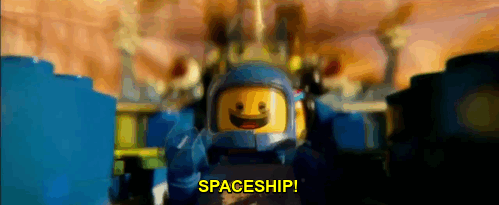I think lack of evidence of alien cultures only proves there is no solution to time dilation and the light barrier. We can probably assume intelligent aliens also have no desire to give up 50,000 years of their civilization to poke around the galaxy on the off chance that one of the Earthlike planets they see in space will have intelligent life 50,000 years later. The only possible motivation I can see for this is if their own planet was dead.
Except even that doesn't account for it, because even sublight generation ships could colonize the galaxy within a few million years, not to mention what self-replicating robotic probes could achieve. A number of more recent SF works have posited that the galaxy has been colonized by such self-replicating AI probes instead of by weak, perishable flesh -- see
Revelation Space, Robert Charles Wilson's
Spin trilogy, David Brin's
Existence, etc.
Personally, I think the lack of evidence only shows that we haven't figured out the right things to look for yet. The assumption has been that aliens would make major changes to the galaxy's structure or broadcast vast amounts of waste energy/signal that we could easily detect. But I think that mature civilizations would learn to be more efficient and subtle in their impact on their environment. The only way we'll survive the next century is by going green, by learning to minimize our ecological footprint and make our technology as efficient and free of waste as possible. So advanced civilizations may have such gentle footprints on the environment of the galaxy that the signs of their presence are just too subtle for us to detect as yet.
That might be a good lower budget show actually. Generation ships leaving a dead Earth trying to find a new hospitable place. That way they can make aliens rare, CGI and non English speaking.
That's sort of what
Stargate Universe did. The SG-verse had FTL, but all humanoid life and Earthlike planets were seeded/terraformed by the Ancients, and SGU was set in galaxies that the Ancients hadn't gotten around to settling, although they had sent robot probes ahead to plant Stargates and terraform planets for eventual settlement. So we only saw a couple of indigenous alien species and they were CGI and non-English-speaking. (Although they were still basically bipedal, not as imaginative a departure from the human form as they could've been.)
Ron Moore's
Virtuality pilot was set aboard a sublight generation ship. There have been a couple of pilots (made or unmade) in the past few years with generation-ship settings, although in the case of
Ascension it wasn't what it seemed. Go back to the '70s and you have the execrable
The Starlost set on a generation ship whose inhabitants had forgotten their origins.
To me scifi is like Westerns with a different backdrop. An opportunity to drop exciting people into a lawless frontier, only with a focus on hypothetical settings and conflicts instead of known historical ones. It can work with or without aliens but aliens makes it more fun.
Of course that doesn't apply to hard scifi.
No reason it can't. Hard SF is just defined by how much it integrates or adheres to real scientific theory, not to the subject matter. It's certainly possible to do hard-SF frontier narratives; plenty of authors have done so.
The far-flung human colonies thing can work, but it depends on the kinda story you're telling. It doesn't work for exploration-type stories, where your ship is going where no one has gone before (and yet keeps running into human colonies), unless you establish a prior wave of outward expansion generations earlier.
Or you can deal with the alienness of the colony worlds themselves, the dangers they pose. They could have hazardous indigenous life forms (e.g.
Pitch Black, or
The Dragonriders of Pern if you count the Thread), or their systems could have astronomical hazards like frequent stellar flares or orbital anomalies or a high rate of asteroid impacts, or the planetary chemistry could prove to pose an unforeseen medical risk to the colonists (e.g. some kind of metallic or chemical poison that could affect brain chemistry or suppress fertility), or they could have ancient alien ruins that present some kind of danger.
And of course humans are often the aliens ourselves. Most SF stories of human-alien interaction are just allegories for human cultural clashes anyway. Colonies often tend to be settled by groups that rebel against the values and culture of their homeland, groups that want to build their own novel, utopian societies on the frontier; and the isolation of colonial living can cause societies to develop in odd ways. This is the angle I took in
Only Superhuman, as you'll recall,
Greg -- an Asteroid Belt civilization where many of the habitats were populated by radical fringe groups that had either voluntarily left Earth or been exiled due to their violent tendencies, and so you had quite a lot of weird, exotic, often dangerous subcultures to visit just within our Solar System alone.
Even within a single ongoing wave of colonial expansion, if it's a century or two old as it is in TOS/TNG, a lot of those early colonies would be pretty isolated for years or decades at a time and could go off in weird directions by the time civilization catches up with them. If it's in a universe without FTL travel or communication, that's even more of a given. There have been a fair number of SF stories about space travelers revisiting isolated colonies and running afoul of their odd cultural values or extremism. Heck, even outside of frontier narratives, there are a lot of works of fiction about city folk running afoul of the weird customs of isolated rural communities, from
Deliverance to
Hot Fuzz to countless TV episodes about the heroes getting caught in rural speed traps and impressed as slave labor for the corrupt local lawmen.

